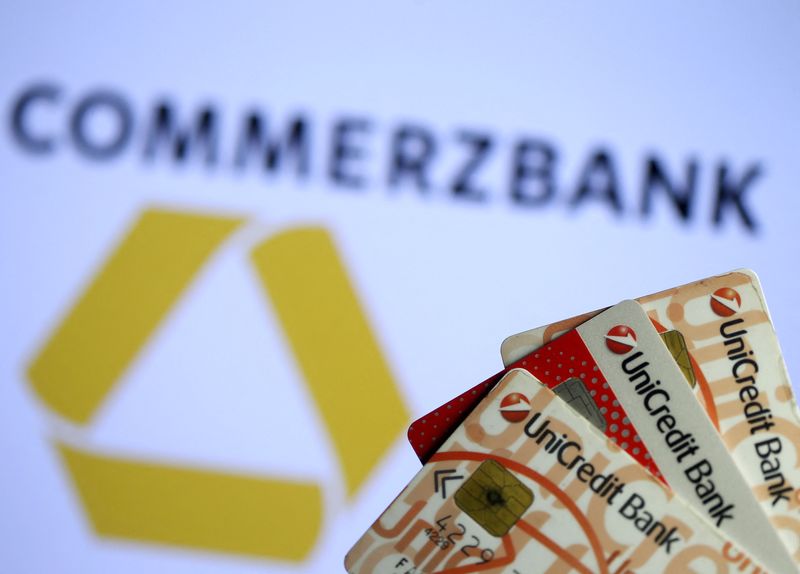BERLIN (Reuters) -German authorities officers and UniCredit bankers have held talks after the Italian lender’s buy of a 9% stake in Commerzbank (ETR:), a German authorities supply mentioned on Friday.
The talks, reported solely by Reuters, mark a big improvement within the potential acquisition of one among Germany’s largest banks by a overseas establishment.
Italy’s second-largest financial institution swooped to take a 9% stake in Commerzbank earlier this week, catching German authorities off guard and getting a hostile reception from native administration, who need to fend it off.
The German authorities supply mentioned it was as much as the banks to resolve what they needed and that the German authorities was not in precept towards a tie-up, however acknowledged Commerzbank’s opposition.
“We must take Commerzbank’s wishes into consideration. There is obviously a strong rejection by the workforce,” the individual mentioned.
UniCredit and Commerzbank declined to remark.
UniCredit CEO Andrea Orcel has mentioned that he would “engage with all the stakeholders and see if the basis for a combination is there”, flagging his curiosity in shopping for extra of the federal government stake within the German financial institution ought to it’s up on the market.
Orcel picked up a stake out there earlier than stepping in to purchase Commerzbank shares the German authorities was promoting by way of an in a single day putting. This irritated some officers in Berlin and was unwelcome at Commerzbank’s Frankfurt headquarters, sources have informed Reuters.
Commerce unionists too, fearing heavy job losses, additionally oppose a tie-up. Frank Werneke, chairman of the German Verdi labour union, has known as on the federal government to cease promoting any Commerzbank shares to forestall a takeover of the financial institution.

Berlin nonetheless owns a 12% stake within the lender.
Commerzbank, bailed out by way of a state rescue after the 2008 monetary crash, is one among Germany’s few main privately-owned banks and a giant lender to the nation’s so-called Mittelstand of medium-sized corporations which are the spine of the Germany economic system.




